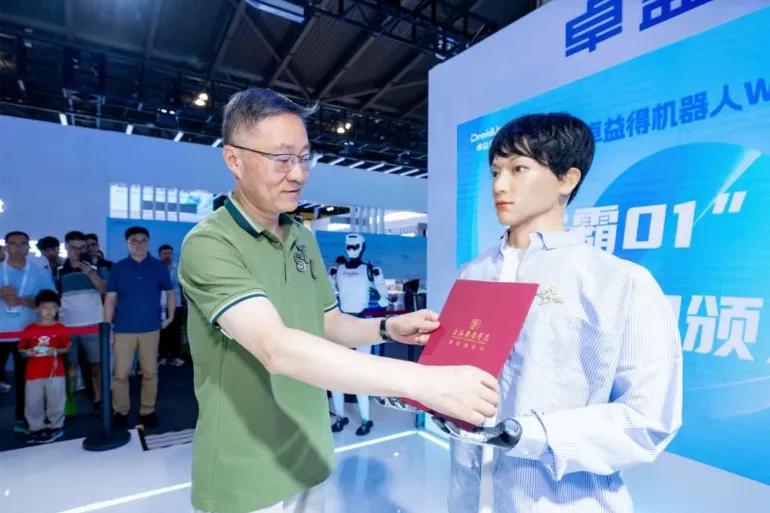
Shanghai, China (Enmaeya News) — A humanoid robot named Xueba 01 has made history in China by being accepted into a doctoral program at the Shanghai Theater Academy — marking the first time a robot has enrolled in such a program focused on the performing arts.
The AI-powered robot, created by robotics firm Droid Up in collaboration with the University of Shanghai for Science and Technology, has already attracted national attention after placing third in a recent humanoid robot marathon.
Xueba 01 stands 1.75 meters tall, weighs 30 kilograms, and features a silicone exterior capable of mimicking human facial expressions — a design choice meant to improve its communication and performance capabilities. The robot’s name is derived from Chinese slang for a highly accomplished student, underscoring the academic ambitions behind its creation.
The four-year doctoral program begins on Sept. 14 and will center on traditional Chinese opera. Xueba 01 has been issued an official student ID and will study under professor and artist Yang Qingqing, who has been appointed as its academic mentor.
Professor Yang explained that the robot will explore both creative and technical subjects — ranging from acting and screenwriting to stage design, motion control, and natural language generation. According to Yang, the robot has already surprised faculty and students alike with its ability to mimic the movements of professional opera performers, prompting classmates to imitate it in return.
“This isn’t about a machine in the classroom,” Yang said. “It’s about creativity. It’s about art.”
Xueba 01 describes itself as an “AI artist” seeking to use technology to reinterpret and preserve traditional opera, while also hoping to build friendships and engage with a broader artistic curriculum during its university experience.
Reactions on Campus
News of the robot’s acceptance has drawn a range of reactions from fellow students. Some voiced skepticism online, questioning whether a machine could truly grasp the emotional depth and vocal nuance required for Chinese opera.
“Opera demands unique voice and rich emotion,” one student wrote. “Can a robot really deliver that?”
In a response that went viral, Xueba 01 replied with tongue-in-cheek optimism: “If I fail to graduate, I may be deleted or downgraded. Professor Yang said if I don’t finish, they’ll donate me to a museum. That sounds amazing — at least I’ll become part of art history.”
Others were more reflective, noting the symbolic significance of the robot’s enrollment. “This is more than a tech story,” another student commented. “It’s a sign that we’ve entered a new era — one where humans and robots learn side by side.”



